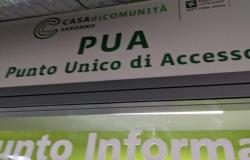by Gianfranco Carnevali and Manuel Monti
28 JUN – Dear Director,
the reorganization cases hypothesized in the course of numerous articles for any major emergency or any pandemic that may occur in the future should not lead to the problems and deficiencies that emerged during COVID-19, but ensure that their occurrence does not have any negative impact on the implementation of all the services aimed at providing timely responses, for example, to emergencies/urgencies and the treatment of oncological pathologies. This does not exclude, but rather urges the prompt initiation of a process of reviewing the current use of the structures used for hospitalization, outpatient clinics, operating rooms, diagnostic activities, etc., based – first and foremost – on their daily use for the longest time allowed in order to reduce waiting lists.
The fact remains that the measures implemented due to the spread of the pandemic have led to restrictions on daily activities, for which every facility manager called upon to provide healthcare services and/or book them should first of all:
– ensure that opening hours are sufficiently broad in a context of equal treatment and full transparency and, above all, compatible with the needs of the reference population;
– ensure the presence of an adequate supply of operators to carry out the activities necessary to satisfy the real health needs of the target population;
– represent, when defining the annual budget of the structure in charge of it, the organizational review objectives it intends to pursue and the personnel suitable in terms of quality and quantity to achieve them;
– implement a management of beds within the department based first of all on the estimate of the number of hospitalizations to be satisfied during the different periods of the year, as the number of emergency hospitalizations can also be foreseen.
The hypothesized interventions for the use of hospitalizations must be supported, for example:
a) from the 24-hour operation of the emergency departments for the purpose of carrying out emergency hospital admissions,
b) the organization of suitable paths to avoid delays in discharge,
c) the timely implementation of diagnostic tests (laboratory, endoscopic and radiological) and consultations with internal specialists,
d) from the operation of the ordinary hospitalisation departments 24 hours a day, every day of the week,
e) by the timely postponement of elective hospitalisations in all cases where unforeseen situations have made it necessary to use the beds intended for them differently,
f) adequate availability in the PS/DEA, 24 hours a day, of spaces, equipment and personnel to respond adequately to the variation in the demand for intervention, taking into account the fact that the need for resources varies substantially over the course of 24 hours; this presupposes first of all the adoption of flexible organizational methods of the personnel suitable for dealing with the assistance requests and, therefore, to avoid periods of over- or under-sizing,
g) by temporarily remodulating the supply of beds in order to satisfy the greater/lesser need in specific times and any overcrowding/reductions, entrusting the medical management of the hospital facility with the task of ensuring the coordination of the timely implementation of all interventions to support care activities.
Final considerations. The health emergency due to the COVID-19 pandemic has shown that:
a) public health interventions are fundamental for the economic and social development of our country and that the health of all depends on the health of each individual, therefore the National Prevention Plan (PNP) 2020-2025 represents the common framework of the objectives of many of its relevant areas, as the COVID-19 emergency has highlighted the need to remodel and strengthen risk prevention and health promotion interventions based on integrated networks of social and health services and on the involvement of the population in empowerment processes, so the PNP therefore becomes a tool to support the capacity to respond to other possible pandemics;
b) prevention governance is a strategic element for policy choices and intervention programming based on the integration of national/regional/local policies through coordinated, shared and participatory planning of the same, to promote the achievement of health results; In this context, the Ministry of Health is called upon to guide the programming, carrying out both central direction, promotion and coordination functions and support to the Regions.
Dr. Gianfranco Carnevali
Expert in healthcare legislation and organization and former General Director of ASL and AO
Dr. Manuel Monti
Director of the “Emergency Room” Unit of the Gubbio-Gualdo Tadino Hospital (PG)
June 28, 2024
© All rights reserved
Other articles in Letters to the editor












